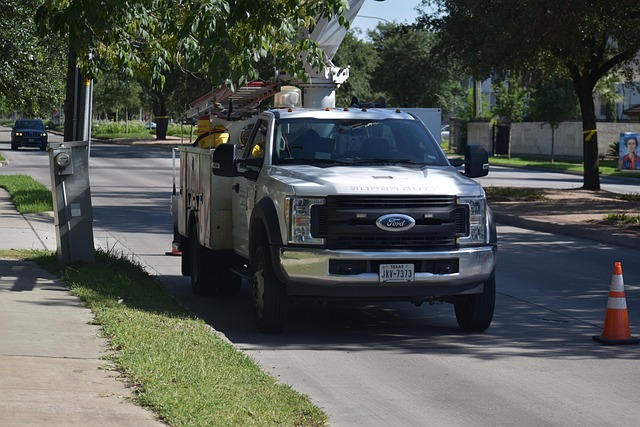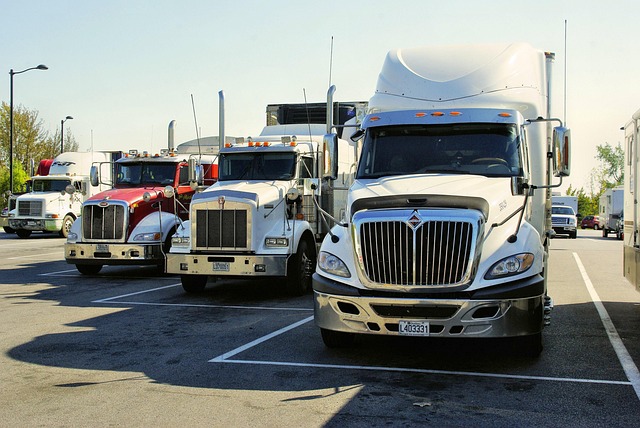Looking to register your car in California? Navigating the process can seem daunting, but with the right preparation, it’s smoother than you think. This guide breaks down the steps involved, from gathering essential documents like proof of insurance and ownership to understanding the role of a VIN verifier—a crucial tool for verifying vehicle identity. Learn how to submit your application, pay fees, and stay up-to-date on important dates and renewal requirements.
- Understanding the California Car Registration Process
- Gather Necessary Documents for Car Registration
- How to Use a VIN Verifier in California
- Submitting Your Application and Paying Fees
- Important Dates and Renewals for California Car Registration
Understanding the California Car Registration Process

Registering a car in California involves several steps that can seem complex at first, but understanding the process simplifies the task significantly. The California Department of Motor Vehicles (DMV) is responsible for handling vehicle registration and licensing. One crucial aspect of this process is the verification of the Vehicle Identification Number (VIN). This unique 17-character code serves as a digital fingerprint for your car and ensures the integrity of the registration.
A VIN inspection is typically conducted to confirm the authenticity of the vehicle’s details, including its make, model, year, and other identifying features. Traditionally, this was done at a DMV office with a fixed vin verifier. However, modern solutions offer convenience with mobile vin inspection services that come to you. These services utilize advanced technology to perform accurate VIN verifications on-site or remotely, making car registration more accessible and efficient in California.
Gather Necessary Documents for Car Registration

Before you begin the registration process, it’s crucial to gather all the essential documents. This typically includes your vehicle’s registration from the previous state (if applicable), proof of insurance, a valid driver’s license, and the car’s title. The Vehicle Identification Number (VIN) is another critical piece of information; you can easily verify this using a mobile VIN verifier or through online platforms to ensure accuracy.
Additionally, have your purchase agreement or sales receipt ready. These documents serve as proof of ownership, which is necessary for completing the registration process smoothly and efficiently, whether you’re opting for a traditional registration at a DMV office or utilizing mobile VIN inspection services for convenience.
How to Use a VIN Verifier in California

Using a Vehicle Identification Number (VIN) verifier is an essential step in the car registration process in California. A VIN is a unique code that identifies your vehicle, and it’s crucial for various checks during registration. In California, you can use a mobile VIN verifier to streamline this process. Many reputable services offer this on-the-go solution, allowing you to verify the VIN of a used car before committing to buying it.
By utilizing a mobile VIN verifier or an online platform that provides such services, you can conduct a thorough inspection. This involves cross-referencing the VIN with various databases to check for accidents, flood damage, odometer rollback, and other potential issues. A comprehensive vin inspection ensures that you’re making an informed decision when purchasing a vehicle. Remember, knowing your car’s history is key to avoiding costly surprises later.
Submitting Your Application and Paying Fees

After completing your vehicle’s registration form, it’s time to submit your application and fees. This step is crucial for officially recognizing your car in California. You’ll need to visit a local Department of Motor Vehicles (DMV) office or use their online services to file your paperwork.
The process involves paying various fees, including a vehicle registration fee and a title fee if you’re transferring ownership. Additionally, ensure you have a valid and accurate Vehicle Identification Number (VIN) verifier on hand—whether it’s through a traditional inspection or a mobile VIN verifier service—to demonstrate the vehicle’s authenticity and history, which is essential for completing your application successfully.
Important Dates and Renewals for California Car Registration

In California, keeping your vehicle’s registration up-to-date is crucial for legal and safety reasons. Important dates to remember include the registration expiration date, which typically falls on the last day of the month, corresponding to when the vehicle was first registered. For example, if a car was registered in May 2023, its renewal date would be May 31st each year. Failure to renew within this timeframe can result in penalties and additional fees.
Additionally, several scenarios may require timely action, such as when selling a vehicle or transferring ownership. A vin inspection or mobile vin verification is often needed during these transitions to ensure the new owner registers the car accurately and legally. Using a reliable vin verifier can streamline this process, making it convenient for California residents to maintain their vehicle’s registration records on time.
Registering a car in California is a straightforward process that requires careful attention to detail. By understanding the necessary steps, gathering all required documents, and utilizing tools like a VIN verifier, you can ensure a smooth registration experience. Remember to submit your application on time, pay the appropriate fees, and stay informed about renewal dates to keep your vehicle legally registered in the Golden State.



